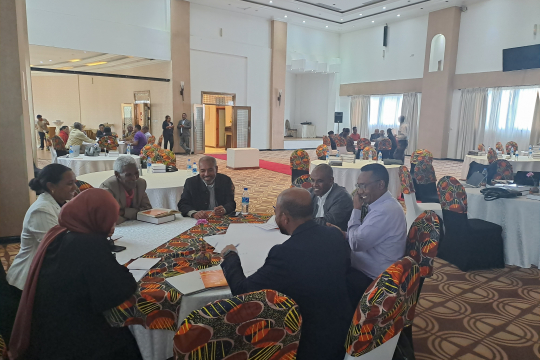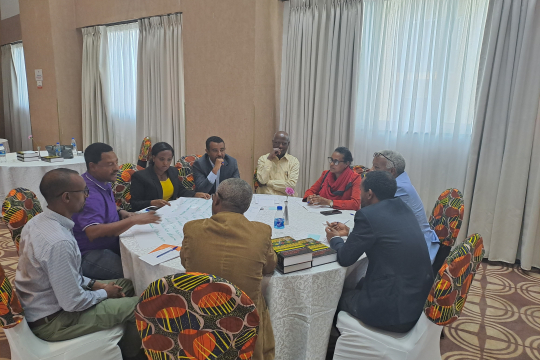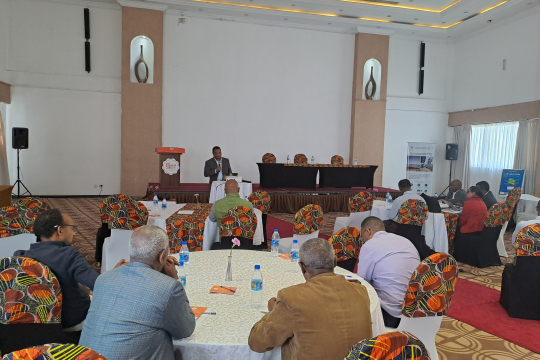EfD Ethiopia conducted a half-day stakeholder workshop as part of the IGE capacity-building program in December 2023. The workshop focused on economic policy instruments to reduce biomass dependency and improve private sector engagement in Ethiopia. Forty experts representing the government, local and international NGOs, universities, professional associations, and civil society organizations participated in this important workshop.
Abebe D. Beyene, Center Director for EfD Ethiopia, highlighted that the current energy landscape of Ethiopia heavily relies on biomass, which has significant implications for both the environment and the well-being of the communities. He noted that it is crucial to work together and plan for a more sustainable energy future. He also emphasized that the transition will not happen without challenges but that it is a collective responsibility to drive the change necessary for a sustainable energy transition in Ethiopia. In addition, the vision for a sustainable energy transition must also be holistic and inclusive, ensuring that no one is left behind.
Participants also discussed the root causes and problems of low private sector engagement in reducing biomass dependency and proposed different policy instruments. The proposed policy instruments include:
- Incentives to the private sector to engage in the energy sector like subsidies, tax exemption, tax “holidays”;
- Providing credit access;
- Enhancing the involvement of financial institutions in clean cooking technologies;
- Creating favorable regulatory environment like developing standards;
- Creating access to finance and allocation of foreign currency for importing clean cooking technologies;
- Providing capacity building and technical support to the private sector;
- Inclusive and gender-responsive policy framework and implementation system
- Public awareness of quality products (i.e. cooking technologies)
- Research and innovation in the design and development of cooking technologies
Finally, it was agreed that this transition cannot happen in isolation and needs strong partnerships between domestic and international partners and the engagement of different stakeholders including the private sector.
“This kind of collaboration enables us to exchange knowledge, share best practices, mobilize resources, and build capacity," said Abebe D. Beyene.
Dr. Alemayehu N. Ayana from Ethiopian Forestry Development added:
By: Asaye Ketema


